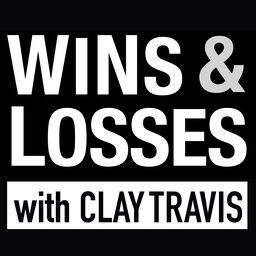Clay Travis dives deep with Jason Whitlock
Clay Travis debuts the inaugural episode of Wins & Losses by sitting down with Jason Whitlock. These two powerhouse personalities talk about all the successes and failures in Jason’s life and how they led him to where he is today. Check out this deeply revealing conversation.
Learn more about your ad-choices at https://www.iheartpodcastnetwork.com
 Wins & Losses with Clay Travis
Wins & Losses with Clay Travis


